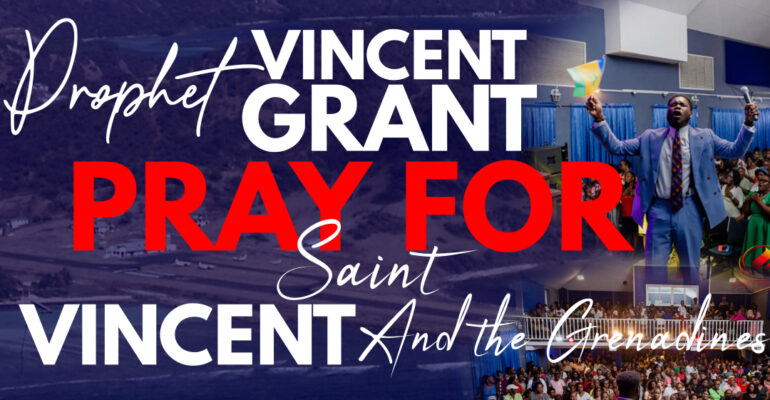Throughout the historical trajectory of St. Vincent and the Grenadines, prayer has functioned as both spiritual refuge and a communal anchor amidst socio-economic upheavals and natural disasters. The insular society shaped by colonial legacies and the transnational flow of cultures, often turned to God in prayer during periods of crisis, such as floods, hurricanes, cyclones, droughts, landslides, and volcanic eruptions. These catastrophes compel communities to confront their vulnerabilities and underscore the importance of faith in navigating adversity.
The juxtaposition of eruptions and spiritual practices illustrates how prayer not only aided in coping with the immediate distress but also fostered a sense of unity and resilience among inhabitants who sought solace through shared religious experiences.
As People of Faith, prayer is a powerful tool that we use to seek guidance, protection, and blessings from God.
In 1 Timothy 2:1-2, Apostle Paul Says, “I urge, then, first of all, that petitions, prayers, intercession, and thanksgiving be made for all people– for kings and all those in authority, that we may live peaceful and quiet lives in all godliness and holiness.” This passage highlights the importance of praying for leaders, as their decisions and actions have a direct impact on the lives of their citizens.
According to the Prophet, Praying for a nation and its leaders is not just a request; it is a responsibility for all believers. Prayer also have a transformative effect on those in leadership positions. As we pray for them, we are inviting God to work in their hearts and minds, convicting them of what is right and just. Through prayer, we can help cultivate a spirit of humility, wisdom, and integrity in leaders, which can lead to justice and equitable governance.
In the context of contemporary socio-political dynamics, the role of spiritual leaders (Prophets) and their influence, prayers and counsel on national governance cannot be overstated.
St. Vincent and the Grenadines is a beautiful island nation located in the Eastern Caribbean. Despite its stunning natural landscapes and vibrant culture, the country faces many challenges that make it in need of prayers.
One of the main reasons why St. Vincent and the Grenadines needs prayers is its vulnerability to natural disasters. The country is prone to hurricanes, earthquakes, and volcanic eruptions, which can cause widespread destruction and loss of life. In April 2021, the La Soufrière volcano erupted and forced thousands of people to evacuate their homes and causing significant damage to infrastructure.
On 1st July 2024 this year, hurricane Beryl struck St Vincent and the Grenadines with Category 4 hurricane force winds which destroy many homes and lives. Prayers can help protect the people of St. Vincent and the Grenadines from these disasters and provide comfort and strength in the face of their adversities and wretchedness.
In addition, Prayer have a broader impact on society as a whole. A nation that values prayer and spirituality is more likely to prioritize ethical and moral values in its economic practices. This can help prevent corruption, fairness and equality and create a more stable and sustainable national economic prosperity.
St. Vincent and the Grenadines faces social challenges such as crime and violence. Gang activity and drug trafficking contribute to high crime rates in certain areas, leading to fear and insecurity among residents. Prayers can help bring peace and healing to communities affected by violence and guide individuals towards a path of forgiveness and reconciliation.
Throughout history, the intertwining of spirituality and governance has been a recurring theme across various cultures and civilizations. In the Caribbean context, particularly in St. Vincent and the Grenadines, the legacy of colonialism has fostered a unique blend of indigenous beliefs, African spiritual practices, European religious traditions, etc. This amalgamation has significantly influenced the societal fabric and governance structures of the island. The practice of prayer, especially in public forums, has often been viewed as a means of invoking divine guidance for leaders, thereby legitimizing their authority and decisions.
Moreover, the historical significance of prayer in governance can be traced back to the early colonial administrations, where religious leaders often played pivotal roles in mediating between the colonial authorities and the local populace. This historical precedent underscores the importance of spiritual gatherings, such as the Beauty For Ashes Conference organized by Prophet Vincent Grant which serve not only as platforms to Preach, prophesy and pray for people but also as venues to pray for Saint Vincent and the Grenadines and the Leadership.

